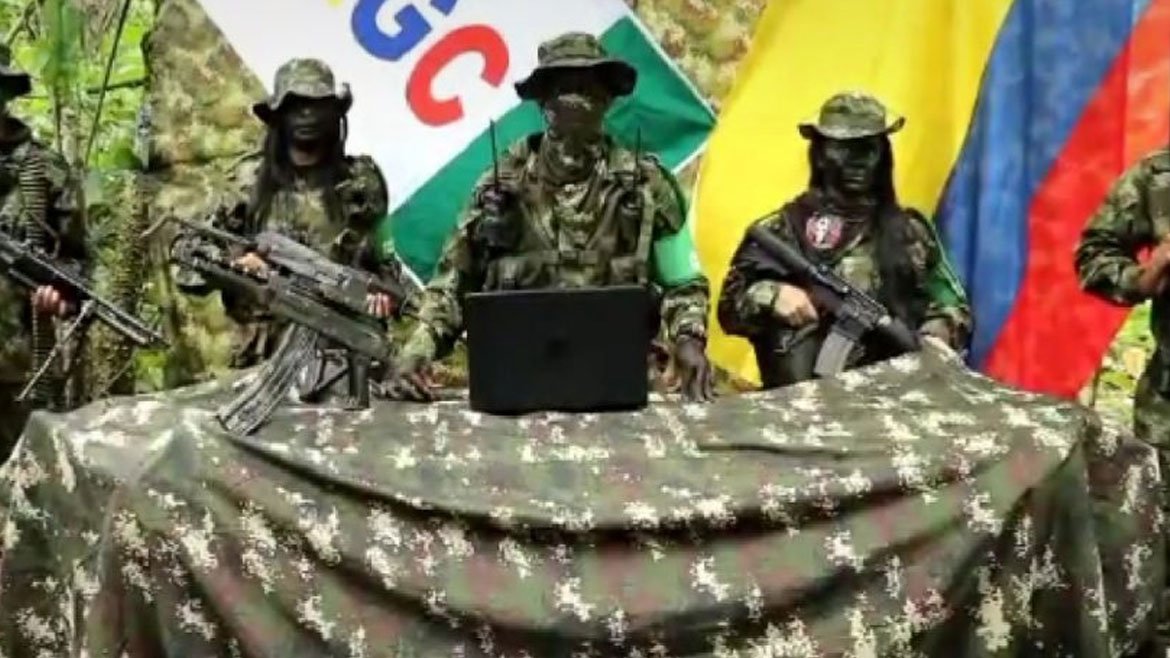Colombia’s largest paramilitary organization AGC said Monday it had hired lawyers to negotiate their demobilization with the government of President Gustavo Petro.
According to a press release, the lawyers will negotiate the participation of the AGC in Petro'”Total Peace” policy on behalf of the paramilitaries’ central command.
By hiring lawyers, the AGC chiefs bypass an apparent attempt of Prosecutor General Francisco Barbosa to block the paramilitaries’ participation in the government’s “Total Peace” plans.
Weeks after the government requested the suspension of arrest warrants in order to facilitate talks with AGC representatives, the prosecution announced last month that it had ordered the arrest of two alleged top paramilitary leaders.
The AGC statement stressed that “the hired lawyers neither belong nor have ever belonged” to the AGC or any of its paramilitary units.
Troubles progress in peace process
The paramilitaries said in August last year, when Petro took office, that they were willing to negotiate their participation in Petro’s Total Peace proposal.
In the same statement, the AGC announced a unilateral ceasefire as a sign of goodwill.
Congress in December approved Petro’s Total Peace bill and allowed the government to begin negotiations about the possible dismantling of the AGC in December.
The president said on New Year’s Eve that he had ordered the security forces to suspend operations against the paramilitaries for at least half a year.
Barbosa’s active opposition has blocked talks about the AGC’s possible participation in the Total Peace initiative and a mechanism that would allow the monitoring of compliance with the ceasefire.
Colombia’s prosecution blocks talks to dismantle paramilitary groups
Other challenges
One of the main challenges to dismantle the AGC is the fact that new legislation is required to allow the mass demobilization of large illegal armed groups.
Currently, the law only allows individuals to surrender to justice. The demobilization of the AGC’s thousands of members would instantly collapse Colombia’s criminal justice system.
The recent charges against alleged AGC bosses suggest that the prosecution never even formulated charges against some of the paramilitaries’ top commanders.
Colombia’s prosecution all but collapsed, statistics suggest
Possible sabotage
Colombia’s war crimes tribunal JEP last year ordered a criminal investigation against the former director of the National Police’s intelligence agency DIJIN, General Fernando Murillo, for his alleged attempt to sabotage hearings of the AGC’s former commander, Dario Antonio Usuga, a.k.a. “Otoniel.”
The criminal charges followed allegedly illegal police interference in court hearings and the theft of testimonies given by Otoniel to the Truth Commission, which investigated Colombia’s armed conflict.
Police and thieves threatening Colombia’s Truth Commission
The alleged sabotage of the hearings of Otoniel are similar to those of demobilized commanders of the AGC’s predecessor AUC, which demobilized between 2003 and 2006.
In fact, prosecutors told the Truth Commission that authorities have been obstructing justice for paramilitary crimes since the 1980’s.
The AGC’s cooperation with justice could reveal the ongoing involvement of corrupt elements within the security forces and the private sector in paramilitary crimes against humanity and drug trafficking.


